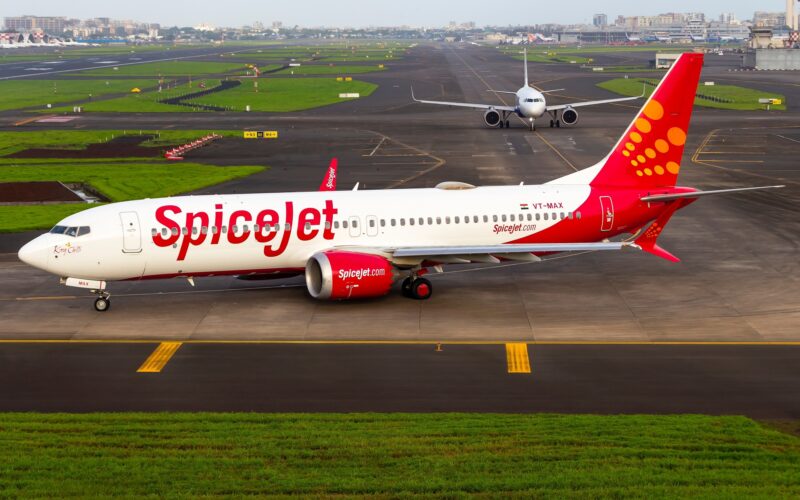India-based low-cost carrier SpiceJet has agreed with the aircraft lessor Carlyle Aviation to convert its aircraft lease dues into equity.
According to a report by The Economic Times citing people familiar with the matter, Carlyle Aviation will convert SpiceJet’s unpaid aircraft lease payments into a 5% stake in the airline. The same report outlined that the lessor has placed 14 Boeing 737 with the Indian carrier.
In total, SpiceJet operates 46 Boeing 737s, only two of which are owned by the airline, according to planespotters.net data. It also has 28 De Havilland Canada DHC-8 Dash 8 aircraft.
The no-frills carrier ended Q2 FY22/23 on September 30, 2022, with a net loss of RS8.3 billion ($100.4 million), continuing a trail of losses since ending FY21/22 with a net loss of RS17.2 billion ($208.1 million). Worryingly, at the end of Q2 FY22/23, the airline posted a negative net worth of RS59.1 billion ($715.2 million), with its liabilities exceeding its assets.
“On account of its operational and financial position, and the impact of the Covid-19 pandemic in earlier periods, the Company has deferred payments to various parties, including lessors and other vendors and its dues to statutory authorities,” SpiceJet noted in a financial update at the end of the second quarter of the current fiscal year.
“The Company continues to implement various measures […] to help the Company establish consistent profitable operations and cash flows in the future,” the statement continued.
On a more positive note, its revenues had grown from RS14.7 billion ($177.8 million) in H1 FY21/22 to RS39.6 billion ($479.2 million) in H1 FY22/23, providing some hope for the airline.
However, according to data from India’s Directorate General of Civil Aviation (DGCA), SpiceJet has been losing domestic market share in the country. In Q1 2022 it carried 10.2% of the total passengers who traveled domestically but in Q4 2022 that share dropped to 7.4%. In January 2023, its market share was 7.3%.

